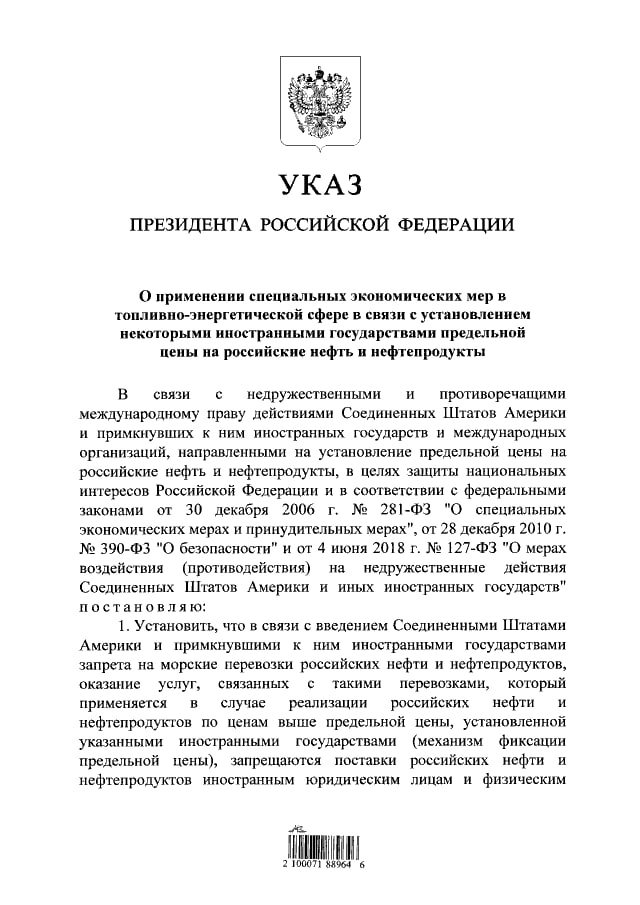Russian President Vladimir Putin signed a decree banning oil trading with those countries that supported the introduction of a price "ceiling" on Russian fuel. The document is published on the official portal of legal information. The decree will be valid from February 1 to July 1, 2023.


On December 26, Russian authorities publicly acknowledged for the first time that Western sanctions and price ceilings were creating problems for Russian oil exports. Deputy Prime Minister and former Energy Minister Alexander Novak said that Russia is having problems insuring ships that are used to export oil.
In addition to a direct embargo on Russian oil supplies to the European Union and the UK, the sanctions set a cap on Russian oil at $60 per barrel. The sale of Russian oil above this “ceiling” deprives Western companies of the opportunity to provide export-related services, such as ship insurance, financial support for transactions, ship charter, consultations, etc.
In mid-December, it became known that the average price for the main grade of Russian oil (Urals brand) fell below the “ceiling” for Russian oil prices set by the Western coalition. From November 15 to December 14, 2022, the average cost of a barrel of Urals was $57.49 per barrel, or $419.7 per ton. The "ceiling" of prices for Russian oil came into force on December 5, 2022. Thus, the Western coalition has already achieved the expected result: Russian oil is sold for $2.51 less than the established threshold.


